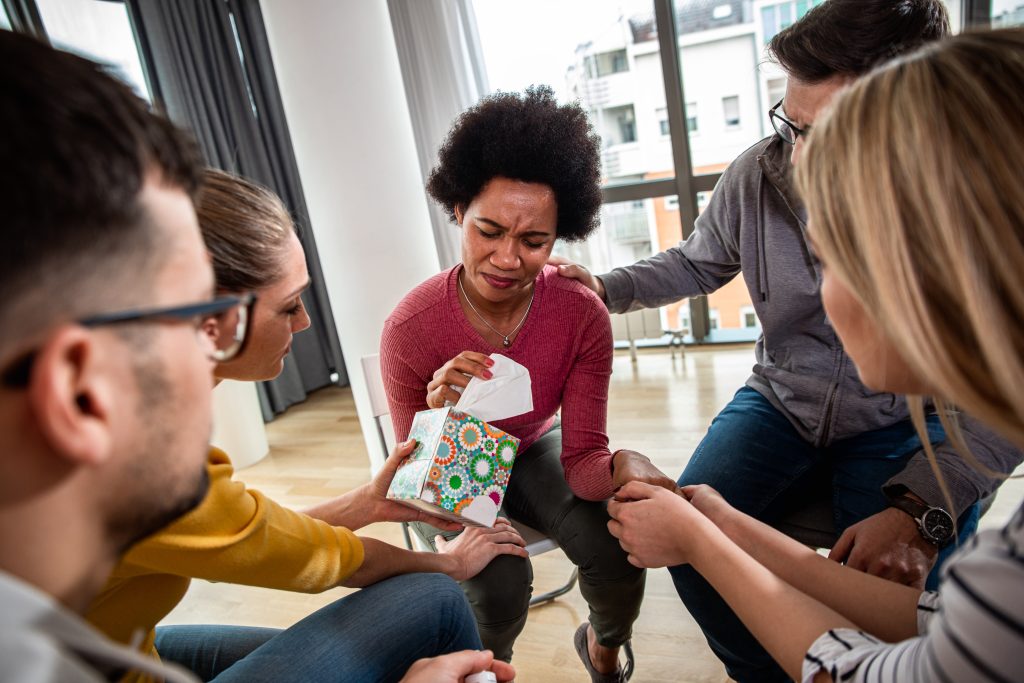The Social Dimension of Wellbeing: Nurturing Meaningful Connections
Think about the last time you had a genuinely good day. Perhaps you shared a laugh with a colleague that brightened your morning. Maybe you received a thoughtful message from an old friend. Or perhaps you enjoyed a family dinner where everyone was truly present. Chances are, meaningful human connection played a role in how you felt.
While we often focus on physical and mental aspects of wellbeing, the social dimension—our relationships and connections with others—plays an equally vital role in our overall sense of wellness. At Nuvola Health, we believe that a holistic approach to wellbeing must include understanding and nurturing the connections that give our lives meaning and support.
Recent research from the Australian Institute of Health and Welfare highlights that strong social networks are associated with better general health outcomes. Yet in our increasingly busy and digitally-mediated world, meaningful connection can sometimes feel elusive. According to the Australian Loneliness Report, one in four Australians report feeling lonely, suggesting that social wellbeing deserves our thoughtful attention.
The Building Blocks of Social Wellbeing
Social wellbeing isn’t simply about having a large number of friends or an active social calendar. It encompasses various types of connections that serve different purposes in our lives:
Intimate Connections
These are our closest relationships—partners, best friends, and family members with whom we share our most authentic selves. These connections typically involve:
- Deep trust and vulnerability
- Mutual support through life’s challenges
- Shared history and understanding
- Comfortable silence as well as meaningful conversation
Family Connections
Whether biological or chosen, family relationships often provide:
- A sense of belonging and identity
- Intergenerational wisdom and perspective
- Shared traditions and rituals
- Unconditional support (though this varies widely)
Friendship Connections
Friendships offer unique benefits including:
- Shared interests and activities
- Different perspectives from our family dynamics
- Choice-based relationships that evolve with us
- Peer support through similar life stages
Community Connections
Beyond individual relationships, community connections provide:
- Sense of belonging to something larger than ourselves
- Diverse interactions with people of varying backgrounds
- Opportunities for contribution and meaning
- Practical support networks in daily life
Casual or “Weak Tie” Connections
Often overlooked, casual connections with neighbours, regular baristas, shopkeepers, and other community members contribute to wellbeing through:
- Brief positive interactions that boost mood
- Expanded social networks and potential resources
- Sense of familiarity in daily environments
- Lower-stakes social engagement
Each of these connection types contributes differently to our social wellbeing. Rather than focusing exclusively on deep relationships, a balanced social life typically includes multiple types of connections that collectively meet our need for belonging, support, stimulation, and community.

Recognising Social Wellbeing
How do you know if your social connections are supporting your wellbeing? Consider these indicators of social wellness:
- You feel comfortable being your authentic self with others
- You have people to turn to for different types of support
- Your relationships involve both giving and receiving
- You feel a sense of belonging in at least one community
- You can navigate disagreements constructively
- You can balance solitude and connection in ways that feel nourishing
- Your social interactions generally leave you feeling energised rather than depleted
These indicators vary between individuals based on personality, cultural background, and personal preferences. Introverts, for instance, may thrive with fewer but deeper connections, while extroverts might draw energy from a wider social network. Cultural backgrounds significantly influence expectations and expressions of connection as well.
Modern Challenges to Connection
Despite its importance, maintaining meaningful social connection faces several contemporary challenges:
Life Transitions
Major life changes often disrupt established social patterns:
- Relocating for work or other reasons
- Career transitions that shift social circles
- Relationship changes including separation or divorce
- Becoming a parent or other caregiving roles
- Retirement and identity shifts
- Health changes that affect ability to socialise
Each transition requires adaptations to how we maintain and build connections.
Digital Transformation
Technology has fundamentally changed how we connect:
- Social media creating both connection opportunities and comparison pitfalls
- Text-based communication lacking non-verbal richness
- Video calls enabling distance connection but with different dynamics
- Digital distraction during in-person time
- Online communities offering new forms of belonging
This isn’t simply about “digital bad, in-person good”—rather, it’s about finding thoughtful ways to leverage technology while recognising its limitations.
Time Pressure
Modern Australian life often feels compressed:
- Longer working hours and commutes
- Increased parenting expectations
- Care responsibilities for ageing parents
- Administrative life tasks consuming leisure time
- Productivity pressure extending into relationships
When time feels scarce, social connection can slip from priority to luxury.
Post-Pandemic Recalibration
The COVID-19 pandemic disrupted social patterns in unprecedented ways:
- Changed comfort levels with in-person gatherings
- Disrupted regular social routines and habits
- Created adaptation fatigue for many
- Highlighted importance of connection through its absence
- Shifted expectations about socialising
Many people are still finding their way back to comfortable social rhythms.
Nurturing Existing Connections
Meaningful connection doesn’t happen automatically—it requires intention and care. Consider these approaches to strengthening your current relationships:
Practice Presence
Quality attention forms the foundation of meaningful connection:
- Put devices away during conversation
- Make eye contact when culturally appropriate
- Listen to understand rather than to respond
- Notice non-verbal cues and emotions
- Follow up on previous conversations
These small acts of attention communicate genuine care.

Deepen Through Vulnerability
Meaningful relationships grow through authentic sharing:
- Share both successes and struggles
- Express appreciation and affection directly
- Acknowledge when you’ve made mistakes
- Ask for help when needed
- Offer support without being asked
While vulnerability involves some risk, it typically strengthens rather than weakens connections.
Establish Connection Rituals
Regular touchpoints help maintain relationships through busy periods:
- Regular check-ins with distant friends
- Family meals or activities
- Annual traditions or gatherings
- Morning or evening connection rituals with partners
- Scheduled activities with friends
These rhythms create reliability in connection without requiring constant coordination.
Navigate Conflict Constructively
How we handle disagreement significantly impacts relationship quality:
- Address small issues before they grow
- Focus on understanding perspectives rather than winning arguments
- Use “I” statements to express feelings
- Take breaks when emotions run high
- Look for mutual solutions rather than compromises
Constructive conflict can actually deepen trust when handled thoughtfully.
Adapt Through Life Changes
Relationships evolve with life circumstances:
- Communicate changing needs and limitations
- Find new ways to connect when old patterns no longer work
- Acknowledge relationship evolution explicitly
- Create new shared experiences appropriate to life stage
- Balance acceptance of change with effort to maintain connection
The strongest relationships adapt rather than rigidly maintaining past patterns.

Expanding Your Social Circle
Sometimes enhancing social wellbeing involves expanding or diversifying your connections. Consider these approaches:
Follow Interest Pathways
Shared activities create natural connection opportunities:
- Join clubs or groups aligned with your interests
- Take classes to learn new skills alongside others
- Volunteer for causes you care about
- Attend community events related to your interests
- Participate in neighbourhood initiatives
Interest-based connections often feel more natural than purely social events.
Practice Micro-Connections
Small interactions build social comfort and community:
- Chat briefly with neighbours or regular service people
- Make eye contact and smile when appropriate
- Engage in small talk that shows genuine interest
- Remember and reference previous conversations
- Express appreciation for everyday interactions
These “weak ties” collectively create a sense of belonging in your community.
Create Gathering Opportunities
Sometimes connecting requires taking initiative:
- Host simple get-togethers without pressure for perfection
- Organise activity-based gatherings rather than just social events
- Create regular meetups around shared interests
- Initiate outdoor or public space gatherings for low-pressure connection
- Consider potluck or shared-effort events to reduce host burden
Being the connector often expands your social circle naturally.
Leverage Digital Tools Thoughtfully
Online platforms can facilitate meaningful connection when used intentionally:
- Join online communities based on genuine interests
- Use video calls for quality time with distant connections
- Create group chats for specific relationships or interests
- Share authentic content rather than polished highlights
- Balance digital connection with in-person interaction when possible
The key is using technology as a tool for real connection rather than a substitute.
Approach New Connections with Curiosity
Expanding your social circle often begins with genuine interest in others:
- Ask open-ended questions
- Listen for what energises others when they speak
- Follow up on details people share
- Look for commonalities while appreciating differences
- Express authentic appreciation for others’ perspectives
Curiosity creates more meaningful first encounters than trying to impress.
The Counterintuitive Truth: The Power of Weak Ties
While we often focus on our closest relationships, research reveals some surprising insights about social wellbeing:
The Strength of Weak Ties
Casual acquaintances and community connections offer unique benefits:
- Provide novel information and opportunities not available in close circles
- Create sense of belonging and recognition in daily environments
- Offer diverse perspectives beyond your immediate social bubble
- Provide lighter, less demanding social interactions
- Create potential bridges to new social circles
A 2022 study published in the American Journal of Sociology found that people tend to underestimate how much these casual interactions contribute to their wellbeing.
Diverse Connection Types
Rather than seeking all social needs from one relationship type, wellbeing is often supported by:
- Different relationships serving different needs
- Varied connection intensities for different life areas
- Mix of long-term and newer relationships
- Balance of family, friendship, and community connections
- Intergenerational relationships providing varied perspectives
This diversity creates resilience in your social support system.
The Balance of Giving and Receiving
Contrary to what we might assume, giving support often benefits wellbeing as much as receiving it:
- Supporting others creates meaning and purpose
- Balanced reciprocity strengthens relationship bonds
- Being needed contributes to social identity and worth
- Giving creates positive emotions and connection
- Supporting others builds skills and confidence
The healthiest relationships involve mutual support flowing in both directions.
Creating Your Social Wellbeing Plan
Enhancing social wellbeing begins with understanding your current situation and identifying opportunities for growth:
1. Reflect on Your Social Landscape
Consider mapping your current connections:
- Who are the people who know you authentically?
- Which relationships energise you versus deplete you?
- What types of support do you have available?
- Where do you feel a sense of belonging?
- What connections have drifted that you’d like to renew?
This reflection provides a starting point for intentional action.
2. Identify Specific Areas for Growth
Based on your reflection, consider what might enhance your social wellbeing:
- Deepening existing relationships
- Reconnecting with valued but distant connections
- Expanding social circles in specific areas
- Building community connections
- Improving relationship skills like listening or conflict resolution
Focus on one or two areas rather than trying to change everything at once.
3. Create Specific Action Steps
Translate insights into concrete actions:
- Schedule regular check-ins with key people
- Join a specific group or class
- Initiate gatherings or meetings
- Practice new communication approaches
- Create boundaries around technology to enhance presence
Specific, achievable actions create momentum for change.
4. Build Connection Into Routines
Sustainable social wellbeing becomes part of daily life:
- Morning or evening check-ins with household members
- Walking meetings with colleagues
- Regular phone calls during commutes
- Weekly or monthly gathering traditions
- Neighbourhood connection during daily activities
These habits make connection consistent rather than requiring special effort.
5. Review and Adapt Regularly
Social needs evolve with life circumstances:
- Notice which connections are flourishing or fading
- Adjust approaches based on what’s working
- Consider seasonal variations in social patterns
- Adapt to major life transitions proactively
- Balance different types of connection
This ongoing attunement keeps your social wellbeing responsive to life changes.

A Balanced Perspective
While social connection is vital for wellbeing, a few important qualifications help maintain perspective:
Quantity vs. Quality
Research consistently shows that the quality of connections matters more than quantity. A few meaningful relationships often contribute more to wellbeing than many superficial ones.
Introversion-Extraversion Differences
Social needs vary significantly between individuals. Someone with more introverted tendencies may thrive with fewer, deeper connections and more solitude, while more extraverted individuals might need broader social circles and more frequent interaction.
Cultural Variations
Cultural backgrounds significantly influence social expectations, communication styles, and relationship norms. There’s no single “right way” to connect—cultural context matters enormously.
Life Stage Considerations
Social needs and opportunities shift throughout different life stages. Young adults, new parents, mid-life adults, and older Australians each face different social circumstances and challenges.
Social Wellbeing as One Dimension
While social connections are vital, they exist alongside other important dimensions of wellbeing including physical health, mental wellbeing, purpose, and financial stability. Balance across these dimensions supports overall wellness.
Looking Forward
Australia’s social landscape continues to evolve with shifting work patterns, living arrangements, technology, and community structures. Adaptability in how we connect will increasingly become a core life skill.
The future of social wellbeing likely involves:
- More flexible approaches to building community
- Technology that better supports authentic connection
- Greater awareness of connection as a health factor
- Workplace recognition of social wellbeing importance
- Community design that facilitates natural interaction
- Balanced digital and in-person connection approaches
By developing thoughtful connection practices now, you’re building skills that will serve your wellbeing through these evolving social landscapes.
Conclusion
Social wellbeing doesn’t require perfect relationships or constant connection. Rather, it emerges from a tapestry of relationships that collectively provide authenticity, support, belonging, and meaning.
By understanding the various dimensions of social connection and approaching relationships with intention, you can nurture the connections that contribute significantly to your overall sense of wellbeing.
At Nuvola Health, we recognise that human connection forms a vital part of the wellbeing picture. While each person’s social needs and patterns are unique, the fundamental need for meaningful connection is universal. Small, intentional steps toward authentic connection can create significant positive impacts on your general sense of wellness and life satisfaction.
Your journey toward enhanced social wellbeing begins with simple awareness and intention—noticing your current connections, appreciating their value, and taking small steps to nurture and expand the relationships that matter most to you.
This article is educational in nature and does not constitute medical advice. For personalised health recommendations, please consult with qualified healthcare professionals. Nuvola Health is committed to supporting your wellbeing journey through evidence-based information and services.


